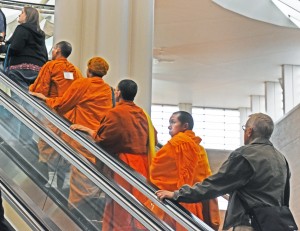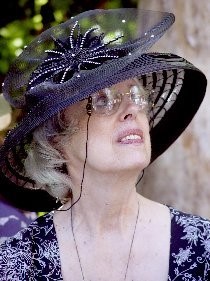Hospital chaplaincy is an often misunderstood vocation. Many unfamiliar with the work of the hospital chaplain equate it with ministry, but that is not what it is at all. Ministers seek to bring a specific message to those with whom they work. Hospital chaplains lay aside their personal beliefs at the door to the patient’s room and seek instead to immerse themselves in the spiritual worldview of the patient or the patient’s family.
At Huntsville Hospital where I am working we have one permanent chaplain and about 20 volunteer chaplains to serve the needs of 881 patients, the families of those patients, and also the staff on the various units. This is a stressful environment in which to work. Sometimes we engage in happy events such as the baptism of a newborn. But often our work is with those who are critically ill or dying. This presents a challenge not only in meeting the needs of the patient and their family, but also in maintaining one’s own spiritual and emotional health.
Our Pastoral Care Department consists of volunteers of many different faiths. We currently have a number of Christian chaplains of various denominations, a Rabbi, two Imams, a B’hai, a Buddhist and a Hindu priest, and myself as the lone Pagan on the staff. This variety of faiths leads to some interesting discussions of beliefs and practices that are helpful when one of us is faced with a patient from a different spiritual group. It has also permitted us to share our theological standpoints and come to a clearer understanding of where we find common ground one with the other.
When I begin my shift at the hospital I spend the morning with a prayer to my Goddess to lead me to those who need my help, and to give me the words and the actions to meet those needs. I know that She will walk with me throughout the day, giving me the strength to do this challenging work. In addition, before I enter a patient’s room or walk to their bedside, I take a deep breath to center myself and prepare for the work I am going to do. From the moment I walk into a room my function become that of creating a sacred space within which the Divine can be at work.
When one enters a room the thing that a patient or their family member needs most is simply to have their story heard, to share their fears, and to receive comforting words of faith. This is where the talent of listening is valuable. The patient will let you know what it is that they need from you if you take the time to listen instead of making assumptions about what to do. The challenge here is to be able to enter the patient’s spiritual belief system and offer support within that system even if it differs from your own…and most times it will. So anyone thinking of being a hospital chaplain would do well to study the beliefs about illness, death, and dying from many different religions.
Sometimes no words are possible or the grief is too intense for words of any kind. Here is where the ability to act as a conduit through which the Divine can enter into a room becomes a source of strength and comfort for all there. This “ministry of presence”, a ministering without words or actions other than a comforting hand or a quiet presence can be just the support a family or a patient might need in a moment of crisis. Such moments require no discussion of faith, simply a human touch that says “I understand, I am with you.”
Perhaps the most important lesson that I have learned in the course of working as a hospital chaplain is that in times of extreme stress all of us need to feel the hand of the Divine resting on our shoulders. It doesn’t matter whether we call that Divine Jehovah, Allah, Krishna, or Cernunnos. Our common humanity binds us more strongly together than ever our religious difference try to push us apart.
















